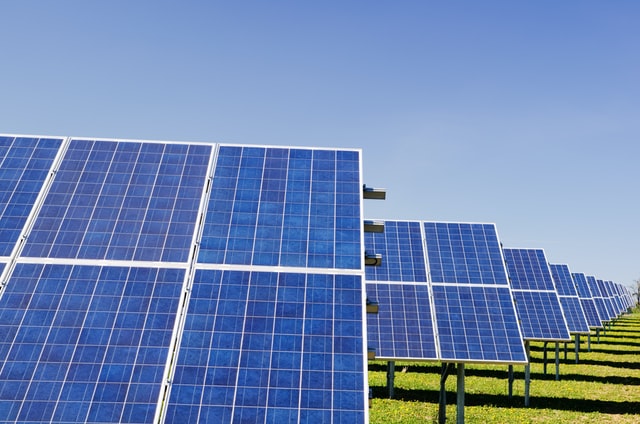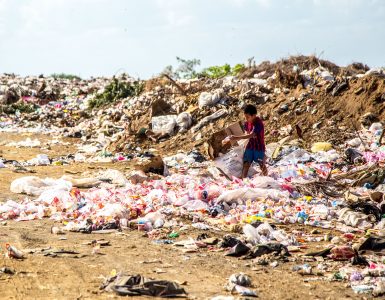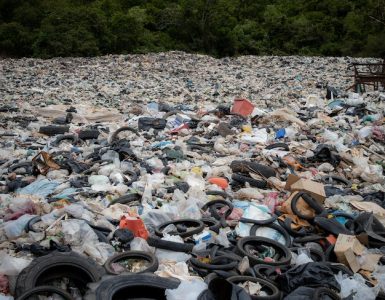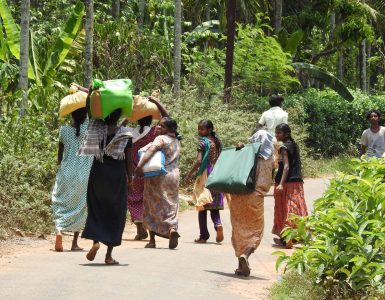In 1998, India and France upgraded their relationship from diplomatic to strategic. So when the Indian Prime Minister visited France in June 2023, the two countries marked their 25 years of this strategic partnership.
To make this occasion momentous, a joint statement was issued, which was aptly named – “25th Anniversary of the Strategic Partnership between France and India: towards a Century of Indo-French Relations”. This joint statement also sets the course for the France-India bilateral relationship in many different areas until 2047, including deepening cooperation in defense, space, digital technologies, cybersecurity, startup, AI, supercomputing, and telecom.
Overall there were more than 6o outcomes in the joint statement. It was encapsulated under three pillars: partnership for security and sovereignty, partnership for the planet, and partnership for the people.
Not taking away from the partnerships for security, sovereignty, and people, but if major economies do not stitch corporations for the survival of the Planet, nothing else matters.
The areas of cooperation extend to many aspects of the planet, including clean energy, blue economy, climate finance, environmental pollution, biodiversity, circular economy, plastic pollution, sustainable buildings, and urban mobility.
Here are the detailed excerpts from the Joint Statement between India and France on their partnership for the Planet.
1. Strengthening energy security to meet our climate objectives
1.1 India and France are cooperating closely on the transition towards a low carbon economy, with the triple objective of meeting the growing demand for energy driven by India’s urbanization and industrialization, increasing energy security, and achieving the SDG7 and Paris Climate Agreement objectives. India and France recognize that increasing the share of clean sources in the energy mix is necessary to achieve the Paris Agreement’s long-term objectives. They commit to work jointly to this end, underlining the importance of simultaneously addressing energy security issues. India and France are convinced that sustainable solutions in the fight against climate change include using nuclear energy.
1.2 Fight against climate change and for the protection of the environment in the Indo-Pacific: India and France will offer sustainable development solutions to the countries of the region through multilateral and third-country initiatives, including the Indo-Pacific Parks Partnership, International Solar Alliance, and the Indo-Pacific Oceans Initiative (IPOI) to protect marine and terrestrial biodiversity. They welcome the dialogue between their development banks aimed at mobilizing players in the Indo-Pacific region in favor of sustainable development (SUFIP Initiative – Sustainable Finance in the Indo-Pacific). India and France will promote dialogue and cooperation on issues related to the blue economy, territorial resilience, and climate finance. India and France will develop their cooperation in anticipating and responding to natural hazards and climate change-related disasters by strengthening the links between their civil security organizations and by sharing their knowledge, expertise, and seed financing, particularly within the Coalition for Disaster Resilient Infrastructures.
1.3 Electronuclear: Both sides welcomed the progress made during discussions about the Jaitapur Nuclear Power Project (JNPP). They welcomed EDF’s proposal for training civil nuclear engineers and technicians from India for deployment in projects with EPR reactors. They look forward to an early conclusion of an agreement in this regard. In compliance with the Skills India initiative, relevant French organizations will also work with Indian counterparts to strengthen training in the nuclear field and encourage/facilitate internships for Indian students. Both countries also agreed to work on establishing a partnership on low and medium-power modular reactors or Small Modular Reactors (SMR) and Advanced Modular Reactors (AMR). Our two countries will continue cooperating on the Jules Horowitz Research Reactor (JHR) to develop nuclear technologies and enhance their exchanges.
1.4 Decarbonated hydrogen: Following adopting the Roadmap on Green Hydrogen, India and France are developing close cooperation in innovation in decarbonated hydrogen production capacities and regulatory standards. The two countries are also promoting industrial partnerships between companies from both countries to implement operational solutions.
1.5 India and France are committed to the increased development of renewable energies. On solar energy particularly, India and France rely on their close cooperation and involvement in the International Solar Alliance to support third countries in their solar programs, particularly through the STAR-C program and the creation of a solar academy in Senegal.
1.6 On hydropower, India and France are strengthening their cooperation and supporting business projects in both countries, particularly renovating existing installations and promoting run-of-river and pumped-storage solutions.
1.7 Energy efficiency: France supports India’s efforts to develop an intelligent electricity network, reduce the energy intensity of its economy and improve the energy performance of its buildings and urban, industrial, and transport facilities, building on the success of the Smart Cities programs conducted in India. Both sides agreed to explore sharing expertise in Energy Data collection and analysis.
2. Jointly addressing the triple crisis of climate change, biodiversity loss, and pollution.
2.1 Aware of the triple challenges of climate change, environmental pollution, and loss of biodiversity, India and France are committed to strengthening their cooperation. Since the consequences of climate change also represent a real threat to public health, India and France are cooperating in the area of public health in the spirit of the One Health approach by exploring cooperation in the PREZODE (Preventing Zoonotic Disease Emergence) initiative, participating in the negotiations of an agreement on pandemics, and bilaterally, in the areas of hospital and pharmaceutical cooperation. As part of the Roadmap on Blue Economy and Ocean Governance adopted in February 2022, collaboration on the sustainable management of fisheries resources and the agreement between IFREMER and NIOT/MoES on marine research and technologies will open up new areas of cooperation. They support launching a dialogue on the ocean within the G20 before the UNOC in 2025.
2.2 Climate change: India and France are committed to steadily raising their climate ambitions to achieve carbon neutrality as soon as possible and no later than 2050 and 2070, respectively.
2.3 Sustainable buildings: India and France recognize the importance of decarbonization and resilience of buildings in the success of climate and biodiversity policies and contributing to the well-being and safety of populations. To this end, India and France are collaborating on the definition and implementation of ambitious policies and innovative means aimed at generalizing the construction of new buildings and the renovation of existing buildings with near-zero emission performances and adapted to future climates while enhancing the diversity of architecture. In this context, India and France are promoting an approach that primarily rests on frugality and resource efficiency in construction. This approach aligns with Mission LiFE (Lifestyles for Environment), adopted by India and supported by France in October 2022.
2.4 Circular economy and plastic pollution: India and France are actively involved in the ongoing negotiations of a new legally binding international instrument to end plastic pollution. India and France are working to apply new countries in the Indo-French commitment to eliminating single-use plastic pollution.
2.5 Biodiversity loss: India and France recognize the importance of the goals and targets, which are global, of the Kunming-Montreal Global Biodiversity Framework (KMGBF) and their effective implementation, following the national circumstances, priorities, and capabilities. India and France continue to implement the Indo-Pacific Parks Partnership (I3P). India and France welcome the adoption of the Treaty on the Conservation and Sustainable Use of Marine Biodiversity in Areas beyond National Jurisdiction (BBNJ) to address, coherently and cooperatively, biological diversity loss and degradation of ocean ecosystems.
3. Supporting urban and ecological transitions in India as well as social inclusion
3.1 India intends to make France, through its expertise, its companies, and the French Development Agency (AFD), its preferred partner in successfully achieving urban transition.
3.2 Integrated waste management: India and France are strengthening their collaboration on solutions to support cities by promoting a circular economy focusing on integrated waste management, strengthening waste collection & transportation, waste-to-wealth solutions, and improving cities’ liquid and solid waste management. Launching the 2nd phase of the City Investments to Innovate, Integrate and Sustain (CITIIS 2.0) program will promote innovative solutions in this area. CITIIS 2.0 also aims at promoting Climate Governance at the State level and building capacities of municipal functionaries.
3.3 Transport & Urban Mobility: India and France are deepening their dialogue on transport by strengthening their cooperation in the railway sector and exploring new solutions to address mobility issues, especially in urban areas like the projects in Ahmedabad and Surat.
3.4 Social inclusion: India and France are keen to promote more inclusive and environmentally-friendly development and encourage initiatives that contribute to the financial inclusion of women and vulnerable populations and promote the development of priority development areas, as in the case of projects supported by Indian funds (Annapurna, IndusInd Bank, Neogrowth) and backed by Proparco.
4. Strengthening trade and facilitating investments between our two countries, with a view to sustainable growth and transition to low-carbon energy
4.1 The development of more resilient value chains is a common objective between India and France which they will facilitate by creating suitable conditions and policy exchanges.
4.2 Trade: India and France are intensifying their bilateral dialogue to resolve as soon as possible the difficulties encountered by Indian and French exporters and investors in their respective markets, particularly in the context of the bilateral Fast Track procedure.
4.3 Cross-investment: India and France encourage Indian and French companies to strengthen their ties and develop activities in both countries, notably to increase the presence of French investors in India and Indian investors in France. To this end, Invest India and Business France have signed an MoU to facilitate investors from France and India in each other’s economies.






Add comment